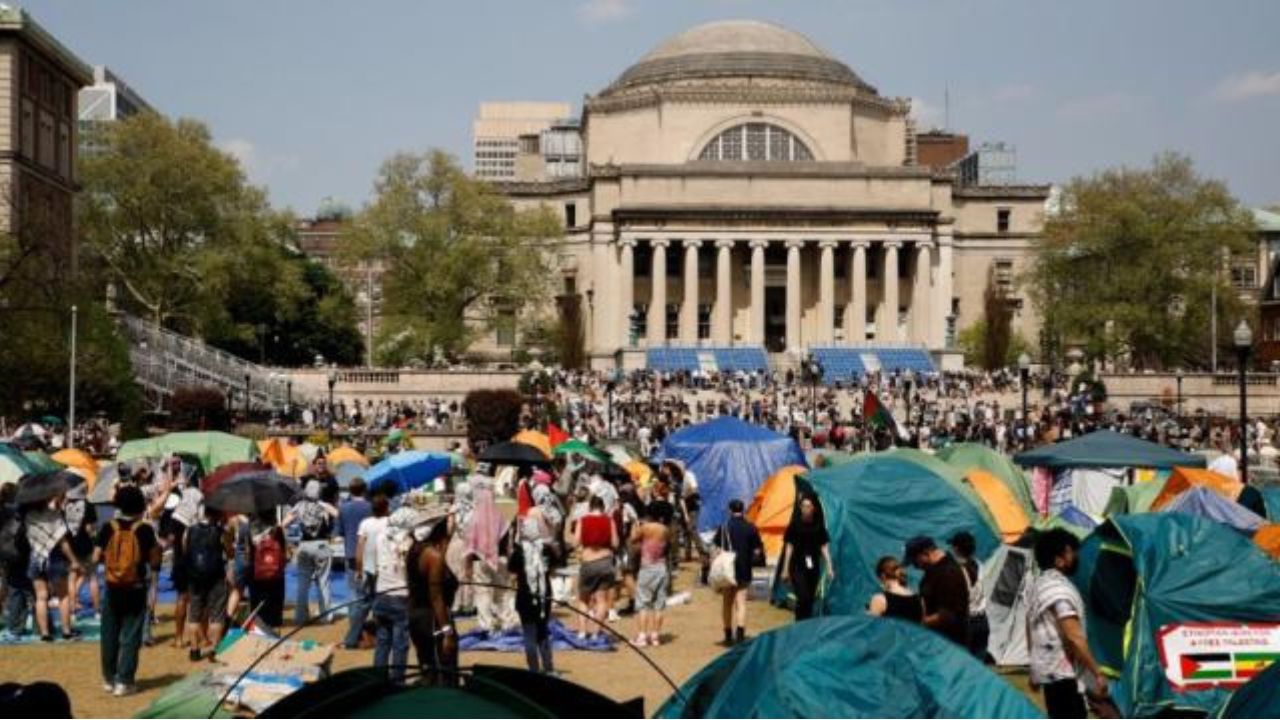Conservative Judges Vow To Not Hire Columbia Grads: Know More Here
Thirteen conservative federal judges have declared that Columbia University has turned into “an incubator of bigotry” in the wake of pro-Palestinian rallies, and as a result, law students and undergraduates from the university will not be hired.

According to CNN and the National Review, the group wrote to Gillian Lester, the dean of Columbia University’s law school, and President Minouche Shafik on Monday.
The thirteen judges signed a letter that stated, “In light of recent events, and barring extraordinary change, we will not hire anyone who joins the Columbia University community—whether as undergraduates or law students—beginning with the entering class of 2024.”
Beginning with an encampment in the main quad, the New York school has been at the centre of protests against the war in Gaza in recent weeks. Protests by students at other US schools have been met with confrontations between teachers, administration, and law enforcement.
Students and teachers have protested against institutions’ ties to Israel or against investors who they believe are profiting from Israel’s military operations.
“Since the October 7 terrorist attacks by Hamas, Columbia University has become ground zero for the explosion of student disruptions, anti-semitism, and hatred for diverse viewpoints on campuses across the Nation,” the letter from the judges read.
“As judges who hire law clerks every year to serve in the federal judiciary, we have lost confidence in Columbia as an institution of higher education. Columbia has instead become an incubator of bigotry,” it continued. “As a result, Columbia has disqualified itself from educating the future leaders of our country.”
On Tuesday, The Independent reached out to Columbia University for a response.
According to the school’s website, graduates and students of Columbia Law School “obtain some of the most coveted judicial clerkship positions in the country,” including jobs on the federal circuit courts and the US Supreme Court.
Many of the signatories to the letter are judges on Texas courts, and all of them were appointed by former President Donald Trump.
James C. Ho, a circuit judge on the US Court of Appeals Fifth Circuit, Elizabeth L. Branch, a circuit judge on the US Court of Appeals Eleventh Circuit, and Matthew H. Solomson, a judge of the US Court of Federal Claims, were the three main signatories.
They contend that Columbia has to reestablish “academic freedom,” not because they disagree with student criticism, which is the reason behind the hiring boycott.
The judges propose three options in the letter for Columbia to address current problems, one of which is to punish staff and students who participated in the protests more harshly.
“After all, elite universities purport to train not just law-abiding citizens but future leaders,” the group said. “Universities should also identify students who engage in such conduct so that future employers can avoid hiring them.”
The justices contend that the protection of free speech should be “neutrality and non-discrimination,” even though it appears that they are primarily discussing pro-Palestinian protests. They further claim that the school would react very differently to an “uprising” by anti-abortionists.
To provide a variety of perspectives, the letter concludes by urging a more diverse faculty and staff.
During the protests, Columbia requested the assistance of the New York City Police Department, whose officers detained numerous students. Ms. Shafik apologized for bringing the university to this point and said in a statement last week that the “drastic escalation” following several months of protests had “pushed the university to the brink. (myskinrecipes.com) ”
“I hope that we can use the weeks ahead to restore calm, allow students to complete their academic work, and honour their achievements at Commencement,” Ms Shafik said on 1 May.
“We also must continue with urgency our ongoing dialogue on the important issues that have been raised in recent months, especially the balance between free speech and discrimination and the role of a university in contributing to better outcomes in the Middle East.”


Comments are closed.